
Mircea Suciu
“In Kafka, something is always not being said. What is it?”
John Banville (A Different Kafka, NYRB, 2013)
“The crows like to insist a single crow is enough to destroy heaven. This is incontestably true, but it says nothing about heaven, because heaven is just another way of saying: the impossibility of crows.”
Franz Kafka (The Zurau Aphorisms)
“He wishes he had never entered the funhouse. But he has. Then he wishes he were dead. But he’s not. “
John Barth (Lost in the Funhouse)
I noticed that Bill Maher’s routine the other night was about the excesses of the government’s response to the Covid pandemic (alleged). I haven’t the energy or inclination to dissect Maher’s routine but I mention it because thousands of people lost their jobs, mom and pop businesses were closed never to reopen. The elderly often died alone. Children were traumatized, their development impeded. The insanity needs more than a few mea culpa laughs. But it is telling now that the filter for revisionism is humour. Talk show comedians are the new pseudo conscience of the state. Lets remember Maher is a staunch Zionist.
“At its root, contemporary capitalism works in a simple way: debt is issued from one door and purchased from another through the issuance of new debt in a depressive loop from which most of the destructive phenomena of our time originate.
The facilitators of the “debt-chasing-debt” mechanism are a class of profiteering technocrats whose main psychological trait is psychopathy. They are so devoted to the mechanism that they have become its extensions – like automatons, they work tirelessly for the mechanism, without any remorse for the devastation of human life it dispenses. The psychopathic dimension (uninhibited, manipulative, and criminally antisocial) is not, however, an exclusive prerogative of the transnational financial clique, but extends both to the political-institutional caste (from heads of government to local administrators) and the so-called intelligentsia (experts, journalists, scholars, philosophers, artists, etc.). In other words, the institutional mediation of reality is now entirely mediated by the mechanism itself. Whoever enters the system must accept its rules while also, ipso facto, assuming its psychopathological traits. Thus, blind capitalist objectivity (the drive for profit-making) becomes indistinguishable from the subjects representing it.”
Paulo Vighi (Trust in Institutions and the War Dividend, Philosophical Salon, March 2024)
I am coming to believe that art and culture matter in a way that is more crucial to human survival than ever before. I should say I am coming to believe this in a more literal and direct way. And I have mentioned a few works of criticism recently, in my blog, abnd on the podcasts (Olson’s Call Me Ishmael, was one) and recently one of Kafka’s aphorisms. From a book titled the Zurau Aphorisms. Kafka never gave it that title, but then this was very late in his life. The aphorisms are a bit like a culmination of sorts (in the way Adorno’s Minima Moralia is one).
“ Kafka spent eight months in Zürau, in the Bohemian countryside, at his sister Ottla’s house, between September 1917 and April 1918. The tuberculosis had declared itself a month before, when he coughed up blood in the night. The sick man didn’t hide a certain sense of relief. Writing to Felix Weltsch, he compared himself to the “happy lover” who exclaims: “All the previous times were but illusions, only now do I truly love.” Illness was the final lover, which allowed him to close the old accounts.”
Roberto Calasso (Veiled Splendor, afterward to The Zürau Aphorisms, Harvil Secker publishers 2006)

Miya Ando (luminum dye resin).
Calasso’s introduction (or afterward) is singularly insightful, in part because he never tries to explain Kafka. There is no explaining Kafka. And it strikes me (and perhaps this has always been something I intuitively understood about Kafka) that he is the ultimate exemplar of form not opinion (per Adorno).
“‘Finished’ seems to me, in the context of Kafka, a dubious or ironic condition, anyway. The more finished, the less finished. The less finished, the more finished. Gregor Samsa’s sister Grete getting up to stretch in the streetcar. What kind of an ending is that?! “
Michael Hoffman (New Yorker, quoted by Deborah Treisman, On Finding and Translating Kafka’s Fragmented, Claustrophobic Gems, 2020)
I came to feel I understood something more about Kafka after spending time in Prague. For Prague is the quintessential ‘mitteleuropa’ city. It is out of date now, but that is a virtue. It cannot become other than it is (was) and still remain Prague. Side bar: this term, ‘mitteleuropa’, is not well defined but I notice Google and other western state forces (and academies) are broadening the definition. Culturally the term meant Hungary, Czechoslovakia, Austria, Bavaria and Bohemia, roughly. And Moravia and maybe Bulgaria. Apropos the end of WW1. It was the Europe that was not Paris or London, not Iberia, not Scandinavia, and not Italy. It was also not really Poland or the Baltic states. And worth adding the Baltics are a reactionary stronghold even today. But they differ more than one might think. Lithuania is the only Catholic country of the three. Others are Protestant. Estonian is another weird language not unlike Hungarian or Finnish. Latvia is the poor relative of the three. Estonia is culturally more Russian, and the smallest. Lithuania is the darkest psychologically (twice the suicides of Estonia per capita).
End side bar. But I want to circle back to Vighi here. And it’s weird to me, if not totally inexplicable, that Vighi is a student (informally) of Zizek (who’s most recent rant was belligerently anti Russian and pro-imperialist). A topic — maybe — for another day. Vighi does (h/t Red Snail) outline many of the problems of financialization in the capitalist west. And I find this relevant because it, the economic and psychic contraction, feels like the logical endgame for western society(s) in general. Especially related to the cultural wasteland in which we all live. Or rather, the wasteland is the inevitable child of this endgame.

Paul Delvaux
“The first known crisis is of the 1870s, which led to a new wave of colonialism and imperialism. The next, World War I and the Great Depression, led not only to fascism but also to its opposite movements: Keynesian, social democratic, and New Deal-style capitalism. Then, the next crisis of accumulation and accompanying structural crises came around the late 60s early 70s – followed by exceptional financial and territorial measures of restructuration – led to our part neoliberal, part neocolonial, part neofeudalist conjuncture. Finally, today, we are in another structural crisis due to the logics of these various systems of governance.”
Daniel Russo (Vighi’s Senile Capitalism)
You might notice no mention of the USSR or Maoist China. This, THIS is the problem. Keynesian capital theory is not the opposite of fascism. It is, in fact, its enabler. Socialism and communism are the opposite of fascism. But then the Philosophical Salon, which publishes Vighi’s work, is a profoundly reactionary outlet (see Gabe Rockhill among others, and the editor Michael Marder). So who are these people? This is the exact place where a certain kind of intellectual vertigo sets in. It is all very reminiscent of the LaRouchites (Schiller Institute) who have infiltrated a lot of organizations and universities. They are not exactly secret but they also don’t advertise. This is the deep and painful reality of the left for the last forty years. There is a deep psychoanalytic discussion to be had at this point regards politics in America. And maybe just politics, period. The FBI infiltrated left wing groups in the sixties and seventies. ( see Aaron Leonard and Conor Gallagher, Heavy Radicals: the FBI’s Secret War on America’s Maoists ). But you cant really understand this without considering the cultural and intellectual backdrop of the U.S.
The story of Richard Aoki, or of Larry Goff are Shakespearean narratives. Or Louis Tackwood (see Glass House Tapes) But I will say Vighi is right regards the lockdowns and their service to western capital. An intervention to hit the pause button on global capital, or rather on its material risks. Just lockdown the society. It was a deflationary move. It was also a disciplinary test. And intentionally meant to crush national economies. And to intensify the so called mental health crisis.
“Since the 1980s we have been faced with warning signs of gigantic proportions: masses of unproductive capitals seeking profitability through credit and financial speculation rather than investments in the real economy. This is because financial gains, primarily by debt leverage, started to outstrip profits made by hiring labor. The capacity to create wealth through traditional channels was eroded dramatically by the unprecedented rise in the organic composition of capital, which Marx defined as the ratio between investment in constant capital (machinery, raw materials, energy, etc.) and in variable capital (wage labor).”
Fabio Vighiu (Unworkable)
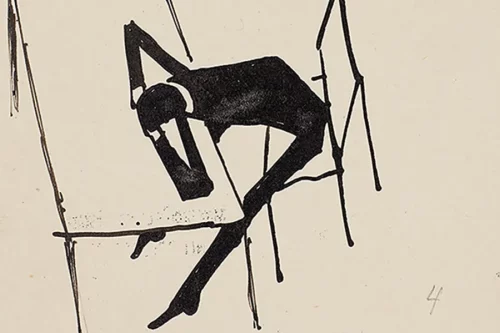
Franz Kafka, drawing.
Here we have the economic version of the technology question.
“Marx believed that the ongoing effort by producers to continue to replace human labor with machines would prove selfdefeating in the end. By directly eliminating human labor from the production process and by creating a reserve army of unemployed workers whose wages could be bid down lower and lower, the capitalists were inadvertently digging their own grave, as there would be fewer and fewer consumers with sufficient purchasing power to buy their products.”
Jeremy Rifkin (The End of Work: The Decline of the Global Labor Force and the Dawn of the Post-Market Era)
“With hindsight we can see that the first postwar decade was the period of the establishment of the system that would operate in the 1960s and reach crisis in the 1970 and 1980s. The United States emerged from the war with a revived and flourishing economy—the only one of the time—with a monopoly on the ultimate weapon. It decided at the Potsdam Conference in 1945 to attack the USSR and to establish world hegemony by imposing a Cold War.This was dreamed up by Churchill, who had not forgotten the defeat of the imperialist powers when they tried to overthrow the Russian Revolution after World War I. { }The American people were ideologically prepared for this policy by an unprecedented hammering of Communism that culminated in semi-fascist state-sponsored McCarthyism and the odious Rosenberg trial.U.S. strategy in Europe and Japan soon achieved total success, thanks to the unconditional recruitment of the entire bourgeoisie and all political parties, including socialist and social democratic parties. Communist parties were isolated after their exclusion from government in France and Italy in 1947. The Marshall Plan paved the way for a rapid rebuilding of Europe, where the United States encouraged reconciliation and a commitment to economic integration. The Organization for European Economic Cooperation was created, which became the Organization for Economic Cooperation and Development (OECD) in 1961; it was followed by the Council of Europe in 1949, the European Coal and Steel Community (ECSC) in 1951, and the Treaty of Rome in 1957. These bodies were not conceived to build a Europe able to compete with the United States and achieve autonomy, but to create a subsystem of an open worldwide system necessary for U.S. hegemony
Samir Amin (Theory is History)
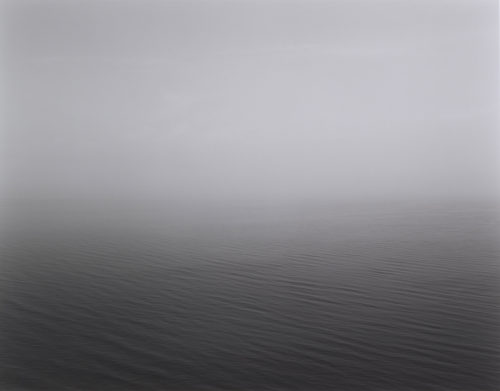
Hiroshi Sugimoto, photography (The Black Sea).
One cannot NOT take the long view, as it were. You cannot begin to unpack the current malaise without history. And few writers do this. And, along with history, comes theory — but also psychoanalysis. Now I sometimes feel 80% of this blog — over ten years — has been trying to delve into the psychological depths — the insanity — of our contemporary world. The mental decline, more accurately. As Johan Eddebo put it, the ‘broad societal regression’.
“The Renaissance breaks with medieval thought. Modern thought distinguishes itself from that of the medieval period by renouncing the dominant metaphysical preoccupation. The importance of partial truths is systematically valorized, while the pursuit of absolute knowledge is left to amateurs. As a result, scientific research in the different domains of the knowable universe is stimulated, and because this research necessarily involves the submission of facts to empirical testing, the break between science and technology becomes relative. Simultaneously, modern science recognizes the decisive value of inductive reasoning, thereby putting an end to the errors of a reason confined strictly to deduction. It is easy now to see the relationship between this revision of intellectual priorities and the demands of the development of the forcesof production in the nascent capitalist system.”
Samir Amin (Eurocentrism)
So, for me, Freud looms as impossibly important. And I have recently, again, run into arguments about Adorno and the CIA and the Frankfurt School alleged anticommunism. I do understand the appeal, because it gives permission NOT to read the Frankfurters. Mission accomplished. I now feel its too stupid to keep discussing. It really is. Meanwhile, the Frankfurt School is equally important to me, and then Marx. And if you are forced to narrow the literature down to only a couple voices, one is Shakespeare, and one is Kafka. (and then probably Melville). For Kafka, though, it is his instinct for uncanniness (something he actually said aloud).
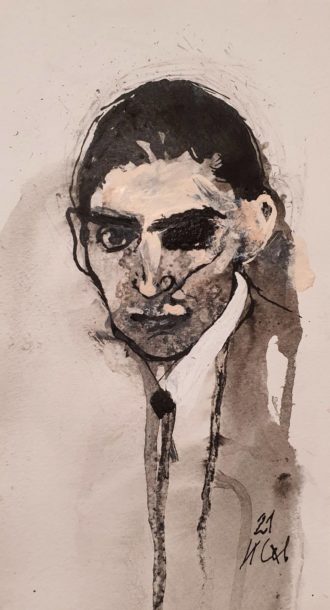
Illian Savkov (Kafka)
“ Appearances can be fleeting, inconsistent, deceptive. But at a certain point one encounters something unyielding. Kafka called it “the indestructible.” This word brings to mind the Vedic akshara more than it does any term used in less remote traditions. Kafka chose never to explain its meaning. He wanted only to distinguish it clearly from any faith in a “personal god.” Indeed he went so far as to assert that “belief in a personal god” is nothing more than “one of the forms” of a widespread phenomenon: the tendency of “the indestructible” to remain “concealed.” And yet “man cannot live without a steady faith in something indestructible within him.”
Roberto Calasso (Ibid)
It has always struck me that Kafka never really wanted his work destroyed. The will he left, found belatedly, is a tad ambiguous and certainly leaving it in the hands of Max Brod insured the work would live on. Interestingly, perhaps ironically, Brod moved to Israel, and was a devoted Zionist. Also interestingly Kafka has never been as popular in Israel as in the Europe or the US.
Brecht said somewhere that Kafka was a sort of premonition: foreshadowing concentration camps and meaningless laws (I paraphrase). It is in Kafka that every allegorical truth of the 21st century resides. And it is, perhaps, in the aphorisms that these truths are most distilled. Both The Trial and The Castle are as embedded in our culture, whats left of it, as Hamlet or Moby Dick. It remains a question, I think anyway, to what degree Kafka was aware of his genius. He clearly considered it, often I think, but within that genius was such a massive doubt. A mystical kind of doubt. The quality of doubt is what matters, at least that’s what I think when I read Kafka. Behind each scene is doubt. Everything is preemptively questionable. Nothing can be trusted.

Gueorgui Pinkhassov, photography.
The loss of critical reasoning has allowed for propaganda to achieve a new level of traction and effectiveness.
“For this reason, this materialism often has religious expression(witness the Freemasons or belief in the Supreme Being). It is also why the two ideologies reconcile themselves without any problem: in the United States, crass materialism determines social behavior (and its “scientific” explanation), while religious idealism survives intact in the American soul. Bourgeois social science has never gone beyond this crass materialism, because it is necessary for the reproduction of the alienation that allows the exploitation of labor by capital. “
Samir Amin (Ibid)
That science is now the cultic side of white masculinity is now surprise. The Covid mantra of ‘trust the science’ was really ‘trust white man science’. Capitalist values penetrate literally all aspects of daily life. Anytime there is cultural expression, of any kind, that is NOT an expression of market values the is backlash.
“Secularism, even though the reactionary ecclesiastical forces fought it, did not root out belief. It even, perhaps, reinforced it in the long run, by freeing it of its formalist and mythological straightjackets. Christians of our time, whether or not they are intellectuals, have no problem accepting that humankind descended from apes and not from Adam and Eve. “
Samir Amin (Ibid)
White man science is the cult of secularism. Within this deformed logic one finds the myriad contradictions of Trump’s popularity. Christians in the US, of the dominionist stripe, or even garden variety cracker Baptist actually believe in Adam & Eve, but tolerate apes partly as an expedient public front. I believe Amin wrote the book quoted above, originally, in the late 1980s. The Christian right has grown exponentially since then. Mike Pompeo has no truck with apes. (interestingly, Pompeo appeared in public recently after many months and had lost 90lbs. A startling weight loss. He maintains he just built a gym in his basement and ate better. This, EVERYONE knows, is a lie. He had some kind of operation or as Al Rose, famed NY trainer said, ‘he used drugs or surgery or both’. But surgery is not manly. Pompeo had to do it the manly way and build his own gym. Perception management.)
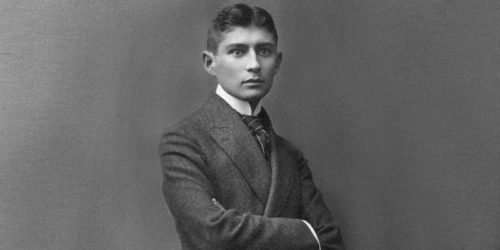
Franz Kafka
“To the vulgar economist who desires to represent capital as an independent source of value, a source which creates value, this form [interest-bearing capital] is of course a godsend, a form in which the source of profit is no longer recognisable and the result of the capitalist process—separated from the process itself— acquires an independent existence.”
Karl Marx (Theories of Surplus Value)
The climate crisis is white science, as I noted before. It is also an expression of a late capitalist anxiety — an anxiety that is worth unpacking a bit.
“When, in a city of 100,000, only one man is unemployed, that is his personal trouble, and for its relief we properly look to the character of the man, his skills, and his immediate opportunities. But when in a nation of 50 million employees, 15 million men are unemployed, that is an issue, and we may not hope to find its solution within the range of opportunities open to any one individual.”
C. Wright Mills (The Sociological Imagination)
Now I want to return to this broad societal regression. For that seems the most basic starting place for all of this.
“The original division of instincts into ego instincts (hunger) and sexual instincts (love) possessed two advantages, namely, (1) that it was popular, and (2) that in accordance with traditional biological thought it contrasted the interests of the individual with those of the species. In addition, it fulfilled a definite function in the developmental history of psychoanalysis. Freud’s great discovery was repression, that is, the fact that one part of the personality struggles against another. What was being defended against was, as psychoanalysis recognized, sexuality. But what was carrying on the defense was fear of punishment or an aesthetic or moral interest of the ego, that is, impulses which could be lumped together with “hunger” as “ego instincts.”
Otto Fenichel ( A Critique of the Death Instinct, First published in Imago, Vol. 21, 1935)
Fenichel was likely the most important and brilliant of the original circle that formed around Freud. Ferenczi would be the other, and then Wilhelm Reich and Simmel. But I digress.

Arghavan Khosravi
“The speculative root lies in the “conservative” character of the instincts, which becomes tangible in the so-called “Nirvana principle.” Every instinctual excitation represents a state of tension and every instinctual gratification brings a relaxation of tension. Thus instincts tend toward a relaxation of tension, toward a “state of rest.” We conceive of the entire psychic apparatus on the analogy of a reflexive apparatus (though one equipped with delaying complications). It experiences external stimuli that excite it as disturbances for which it strives to find motor discharge as quickly as possible (or later: which it attempts to bind by anti-cathexes). If this conception is justified, then one can say that the aim of the psychic apparatus is absence of excitation, “Nirvana.” In Beyond the Pleasure Principle Freud has clearly and convincingly demonstrated that this tendency to discharge excessive excitations or to bind them is under certain circumstances stronger than the pleasure principle, and that in traumatic neuroses, children’s play, and transference it even leads to unpleasurable repetitions of unpleasurable experiences. There can be no objection against preferring to call this “Nirvana” “death,” since inorganic substances differ from organic ones precisely in that they are not excitable.”
Otto Fenichel (Ibid)
But early on, Freud recognized there was another set of instincts, or one instinct with multiple facets, that *sought* excitation. That did not look to get rid of, or discharge these energies. And this was in sexual urges.
“The clinical root is the existence of aggressiveness. Aggressive tendencies of all sorts constitute quite a high percentage of all human instinctual impulses. In part, they have a reactive character; i.e., they are responses to frustrations, and their aim is to eliminate frustrations from the world. In part, however, they appear closely linked with certain sexual impulses, and in particular with those instinctual sexual aims which predominate in the early stages of libidinal organization, and are called by us “pregenital” aims. Finally, they seem also in part to appear spontaneously, independent of sexuality. In addition there is the riddle of masochism, namely, the fact that under certain conditions the pleasure principle—the leitmotif which on all other occasions enables us to orient ourselves in regard to human actions seems to be suspended and the person manifests self-destructive tendencies. Furthermore, clinical experience shows that all manifestations of masochism are exchangeable with sadism—that aggressiveness which is so close to sexuality. Where masochism appears, analysis (as Freud has shown) demonstrates that a sadistic impulse has undergone the vicissitude of “turning against the self.” Undoubtedly the opposite of this also occurs: externally sadistic behavior may hide unconscious masochistic aims.”
Otto Fenichel (Ibid)
It is worth noting that this kind of thinking, this clarity, has utterly gone missing today in the fields of psychology.
“These speculative and clinical roots were then welded together by Freud into the new instinctual theory, according to which there are two qualities in the psyche, a self-destructive one, the “death instinct” (which can be “turned outward” and can thereby become an “instinct of destruction”), and the object-seeking eros which strives for higher unities. Since there is in reality neither a pure self-destruction, nor a pure object-seeking which intends no discharge of tension, this theory conceives of all actual psychological phenomena as various “degrees of fusion” of the two assumed qualities.”
Otto Fenichel (Ibid)

Zlatá ulička 22 , Prague. (inside castle grounds). Kafka wrote there 1916 to 1917.
And instincts are the demand made by the body on the psyche. The original somatic source causes the psychological system to become excitable – coupled to sensory stimuli there is further excitement. The instinctual action then results in something equivalent to a “discharge” , to a relaxation of tension. There is a philosophic question rarely asked here regards release of tension. And implying equilibrium. That stasis is, or could be, desired. Is equivalent to absence of tension. Etc.
“…it does not seem to me possible to set up the “death instinct” as one species of instinct over against another species. We should rather attempt to regard all the actual phenomena which arc denoted by the concept “death instinct” as dependent not on a species of instinct, but on a principle, which originally obtained for all instincts, but in the course of development has, under certain influences (in the final analysis, those of the external world), been obliged to undergo several modifications in several respects. Indeed, the concept of the “Nirvana principle” as a point of departure does in fact permit a unitary view, not only of all psychological processes, but also of all life processes in general. Let us remember that it is the very group of instincts which most clearly exhibits a craving for stimulus, a longing for objects, and a striving toward higher unity—namely, the sexual instinct—which also most clearly shows a striving toward discharge, toward “rest” after excitation. It cannot be that the “Nirvana principle” holds for one kind of instinct, while the “craving for stimulus” holds for another; the craving for stimulus must be derived on genetic-dialectic lines from the Nirvana principle which is at the present day antithetic to the Nirvana principle. (When an infant that craves sleep is awakened by somatically determined hunger, it follows in the first instance its Nirvana principle in wanting to assuage its hunger and continue to sleep. When it later on recognizes that an intervention of the external world is necessary to this end, then it strives for this intervention and longs for the external world. The first craving for stimulus does not seem to be in contradiction to the Nirvana principle, but to act in its service.”
Otto Fenichel (Ibid)
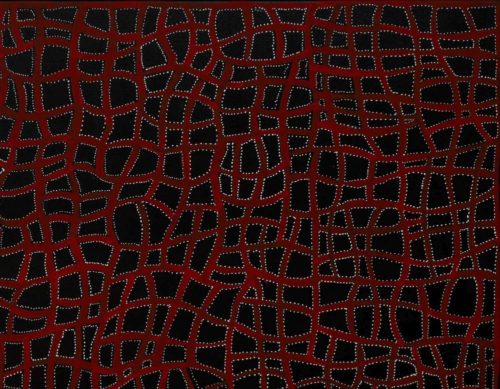
Abie Loy Kemarre
I am quoting at length here because I feel this is quite relevant to this idea of broad societal regression. From the beginning of Freud’s thinking, during this period, there appeared to be a link or fusion or interrelationship between aggression and eros. That the oral incorporative phase saw a fusion (or, find a better word….linkage, connection) between love and hate. That they almost certainly originate in the same place, from the same place. Fenichel adds:
“What is without doubt biologically determined is the fact that the earliest instinctual relationships to objects, which first arise with the apprehension of the existence of an objectual world, strive for an objective annihilation of that world.”
In some sense this is what haunts humanity. It haunts us as individuals. I have early memories of experiencing this sense of hurtling into an abyss. It has never left me, that fear, but I manage it better. It took well into middle age for me to so. Fenichel concludes his essay, which began in theory as a criticism of the death instinct with this:
“A biological generalization of the Nirvana principle—a conception like that of the biologist Ehrenberg, which has several meeting points with Freud’s theory of the death instinct—seems to me to be very profound and impressive. That life is “a course toward death” seems to me to do fundamental justice to the nature of the phenomena of life. The young organism is full of prospective potentialities. Every stretch of life it passes through crystallizes out of it “structure” which makes it “rigid,” limits its prospective potentialities and brings it nearer to the inorganic. In the beginning of life, the prospective potentialities are at their height and structure is minimal; at the end of life there are no more potentialities but mere structure = death. Once one has thought through such a conception of life it is easy to see in psychological processes, too, only a special case of life processes in general.”
Otto Fenichel (Ibid)
He also points out, throughout the essay, that what the individual is in conflict with is the external world.

Antonia Ferrer
As a side bar, I want to quote a brief paragraph from the short bio on Fenichel that appears on the website Mit Freud in Berlin.
“After a nerve-wracking wait for the opportunity to leave for California, where Fenichel could expect a three-year contract in the Los Angeles Psychoanalytic Study Group as a training analyst, he and his family left Prague on May 1, 1938. During his exploratory journey through the centers of psychoanalysis in the USA, Fenichel – like other émigrés – encountered a high degree of ambivalence. The European refugees were seen as a threat in the recruitment of solvent analysands. In 1938, the American Psychoanalytic Association decided to no longer admit non-physicians to psychoanalytic training. ‘Lay people’ were not recognized as full members. Even Otto Fenichel, who had excellent medical training and was in demand, was considered a ‘layman’ because his European medical studies were not recognized. { } The need to connect psychoanalysis with socio-political issues outside of its medicalization was evident in Fenichel’s literary seminars. The members of the Institute for Social Research, Max Horkheimer, Theodor Adorno and Leo Löwenthal took part here and sought a connection to the psychoanalysts for their large anti-Semitism study. Fenichel experienced with deep regret the fragmentation of psychoanalysis in the United States in the mid-1940s. On the occasion of a tour of the USA visiting his old friends, he was also disappointed to discover that the left-wing culture of discussion, which had been the driving force for writing the newsletters 11 years earlier, had fallen asleep. Fenichel discontinued the newsletters, with the last one on July 14, 1945.”
The radical impulse in psychoanalysis was under assault as far back as the early 1940s. For the emigres to the U.S. life was fragile and income precarious. This always seems left out of the left revisionists attack on psychoanalysis and on the Frankfurt School. The endless posturing about the alleged anti communism of Frankfurt thinkers comes from junior academics, mostly. It’s a social media game. Adorno was a philosopher. There is a three volume book on the 68 student movement in Germany and its relationship with Adorno, Marcuse, and Habermas. Essentially what remained, really, of the Frankfurt School. It is, however, only in German. You can google translate a few reviews of it and summaries.

Hoffman Sanatorium, Kierling Austria, where Kafka died, 1924 from TB.
It is worth noting that one of the leaders of the students in opposition to the university philosophy department was Rudi Dutschke. Later an increasingly reactionary Green candidate before his early death (due to complications from an assassination attempt on him). Esther Leslie has a piece at New Left Review
https://newleftreview.org/issues/i233/articles/1981?token=4XR9Xuse5m1I
In a review of the three volumes at Deutschlandfunk:
“The psychoanalyst Helmut Reiche recalls the myth of the “sexual revolution”. A conversation with Oskar Negt, Adorno’s former assistant and current sociologist at the University of Hanover, provides inspiration for new theorizing for the left, which has found itself on the defensive. Finally, the instigator of “disobedience”, Ulrich Sonnemann, who died in 1993, thinks about the Oedipal entanglements of the 1968s: While their own fathers and most of the professors at the time were exposed as Nazi collaborators, the students pinned all their hopes on returning emigrants like Adorno and Horkheimer, whose immunity and resistance to National Socialist tyranny was unquestionably given. But the 1968ers also had a broken relationship with these self-elected authorities, according to Adorno’s student Detlev Claussen, who now teaches sociology at the University of Hanover: “Surely there is one of the reasons why not only Adorno, but also Horkheimer and Herbert Marcuse in Germany had such a specific effect, something to do with the generation of fathers in Germany who had their decisive years under National Socialism. “
Adorno noted in one of his letters his sense of despair at being surrounded by former Nazis who had quietly and seamlessly been reintegrated into German society.
I think this is what many of the anti-Frankfurt left forget or simply choose to ignore. One is talking about thinkers who had spent their entire life fighting fascism and who had seen family and friends die at the hands of the Nazis. These were not average hack adjuncts. They understood in the deepest way the nightmare of the capitalist West. The spiritual horror-show of America. To look back and pick out who funded certain publications is petty and meaningless, finally, given the scope and scale of their contributions. Ok, now to return to the broad societal regression…

Garry Fabian Miller
“It’s one of my favorite Darwin quotes—”He who understands baboon would do more toward metaphysics than Locke”—scribbled furtively in a notebook between visits to the London Zoo in the summer of 1838. Twenty-one years would pass before On the Origin of Species would shock the world, but Darwin already knew: If man wanted to comprehend his mind, he’d need to train an unflustered gaze into the deep caverns of his animal past.”
Oren Harman (The Evolution of Altruism)
This (below) is from Chris Cutrone’s prospectus for a book on Adorno in 69. It is very telling and while dense and nearly opaque at first reading, it is worth a bit of reflection:
“In his Negative Dialectic (1966), in a section titled ‘Objectivity and Reification,’ Adorno had written of the emancipatory aspect of the vision for “planning” in a socialist society in preserving the non-identity of subject and object: “In the realm of things there is an intermingling of both the object’s [non]identical side and the submission of men to prevailing conditions of production, to their own functional context which they cannot know. The mature Marx, in his few remarks on the character of a liberated society, changed his position on the cause of reification, the division of labor. He now distinguished the state of freedom from original immediacy. In the moment of planning — the result of which, he hoped, would be production for use by the living rather than for profit, and thus, in a sense, a restitution of immediacy — in that planning he preserved the alien thing; in his design for a realization of what philosophy had only thought, at first, he preserved its mediation.” The “functional context which they cannot know” is capitalism, which generates not only critical subjectivity, but the theory-practice problem as a non-identity of subject and object of practice. By comparison, the 1960s radicals had anticipated overcoming the separation of theory and practice immediately through their own efforts at (personal) transformation.”
Chris Cutrone (Adorno in 69)
The ideas of personal transformation never ended. If anything they became more rigid and sclerotic. And more marketed. But to return to Freud, and the early visionaries of psychoanalysis.
“This first theory of repression was upset by developments in the exploration of the sexual instinct (libido). The antithesis of sex and self-preservation was undermined when empirical facts forced on psychoanalysis the recognition of the narcissistic character of the sexual instinct; for narcissistic libido cathects the self, and there was no way of distinguishing narcissistic libido from the self-preservation instinct. “
Norman O. Brown (Life Against Death)
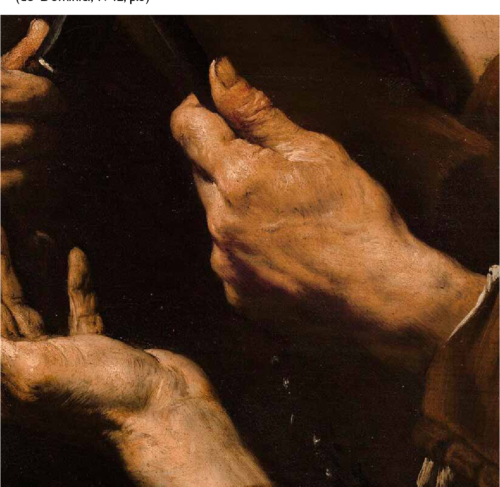
Jusepe de Ribera (Martyrdom of St Bartholomew, 1632, detail)
Psychoanalysis is the discipline or art of the industrial revolution.
“The fear of bourgeois civilization is summed up in two names: Frankenstein and Dracula. The monster and the vampire are born together one night in 1816 in the drawing room of the Villa Chapuis near Geneva, out of a society game among friends to while away a rainy summer. Born in the full spate of the industrial revolution, { } The literature of terror is born precisely out of the terror of a split society and out of the desire to heal it. It is for just this reason that Dracula and Frankenstein, with rare exceptions, do not appear together. The threat would be too great, and this literature, having produced terror, must also erase it and restore peace. It must restore the broken equilibrium — giving the illusion of being able to stop history — because the monster expresses the anxiety that the future will be monstrous. His antagonist — the enemy of the monster — will always be, by contrast, a representative of the present, a distillation of complacent nineteenth-century mediocrity: nationalistic, stupid, superstitious, philistine, impotent, self-satisfied.”
Franco Moretti (Dialectic of Fear)
The death instinct. Narcissism. That the sexual instinct has a narcissistic character. The problem with western thought today is that nobody reads Marx. The problem with Marxists is that they don’t read anything else. The demand made by the body on the mind. Dracula and his antagonist, representative of the present, the complacent bourgeois philistine. The covid lockdowns were both a trial balloon for how far the government can take its control, and a way to crush the economy. To shrink it. The monsters of bourgeois society threaten to control the world. The Dracula of Bram Stoker is an entrepreneur, an investor, a rational calculating monster, a capitalist. Elon Musk is Dracula. But so is Rupert Murdoch. The idea of this dangerous split in society remains today. The regression builds on the erosion of skills. The working class is not taught how to add or subtract, cursive writing is lost and mostly the young are screen addicted. Getting the West addicted to screens is the 21st century version of England getting China addicted to opium. We are seeing the Opium Wars reenacted in media consolidation circa 2003. Keep children glued to screens.
“A sociological analysis of Frankenstein and Dracula reveals that one of the institutions most threatened by the monsters is the family. Yet this fear cannot be explained wholly in historical and economic terms. On the contrary, it is very likely that its deepest root is to be found elsewhere: in Eros.”
Franco Moretti (Ibid)

Newspaper cartoon, 1864, Opium Wars.
“Klaus Mann insisted that there was a similarity between Kafka’s world and that of the Third Reich. And while it is true that any direct political allusion would have violated the spirit of a work whose ‘hatred of him against whom the struggle is waged’ was far too implacable to have sanctioned any kind of aesthetic realism, any acceptance of the façade of reality at face value nevertheless, it is National Socialism far more than the hidden dominion of God that his work cites.”
Theodor Adorno (Notes on Kafka)
Addiction to ever more repetitive empty image. Google Search has deteriorated, and the company admits it is no longer a ‘tool’. It is a ‘companion’. Which is an empty metaphor. It is nothing, really. It is like an instruction manual with half the pages gone. The very word ‘companion’, used in relation to technology, has an uncanny and disturbing quality.
“In The Castle the officials wear a special uniform, as the SS did—one which any pariah can make himself if need be. In fascism, too, the elites are self appointed. Arrest is assault, judgment violence. The Party always allowed its potential victims a dubious, corrupt chance to bargain and negotiate, as do Kafka’s inaccessible functionaries; he could have invented the expression,’protective custody’, had it not already become current during the First World War. Gisa, the blonde schoolmistress, cruel and fond of animals—probably the only pretty girl depicted by Kafka who is free from mutilation, as though her hardness scorned the Kafkaesque maelstrom—steams from the preadamite race of Hitler Jungfrauen who hated the Jews long before there were any. Acts of unbridled violence are performed by figures in subordinate npositions, types such as noncommissioned officers, prisoners of war and concierges. They are all déclassés, caught up in the collapse of the organized collective and permitted to survive, like Gregor Samsa’s father. As in the era of defective capitalism, the burden of guilt is shifted from the sphere of production to the agents of circulation or to those who provide services, travelling salesmen, bank employees, waiters.”
Theodor Adorno (Ibid)
Americans today love nothing more than ridiculing someone. Anyone. But its particularly satisfying if its an artist (abstract, of course) or a conspiracy theorist. Social media is a fun house mirror, a game to train psychopathy. Kafka was the voice of the death instinct, the immutable fusion of eros and aggression, but a fusion carried out in a suffocating inner space, a secret subjectivity. It was not death as destruction, it was death as something ineffable and, as Calasso says, akin to the Vedic idea of *akshara* — A quality of the divine, yet it is not quite a personal divinity, but it does exhibit the tendency toward self concealment. The concealed God.

Recruiting card to get volunteer nurses to join the SS Red Cross, Belgium.
“His entire work, however, is permeated by the theme of depersonalization in sex. Just as, according to the rite of the Third Reich, girls were not permitted to refuse medal of honour winners, Kafka’s spell, the great taboo, extinguishes all the lesser taboos which pertain to the sphere of the individual. The textbook example of this is the punishing of Amalia and her family—by tribal rite—because she refuses to submit to Sortini. In the ruling powers, the family triumphs as an archaic collective over its later, individualized form. Helpless, driven together like animals, men and women are coupled. Kafka fashioned his own neurotic guilt feelings, his infantile sexuality as well as his obsession with ‘purity’, into an instrument with which to etch away the approved notions of eroticism. The absence of choice and of memory which characterizes the life of white collar workers in the huge cities of the twentieth century becomes, as later in Eliot’s ‘Waste Land’, the image of an archaic past. It is anything but hetaeric. In the suspension of its rules, patriarchal society reveals its true secret, that of direct, barbaric oppression. Women are reified as mere means to an end: as sexual objects and as connections. “
Theodor Adorno (Ibid)
Something has gone out of humanity, and there feels like there is an inner imbalance, an imbalance that is both the result of Capital and the cause of Capital. The imbalance that at least took its current form, or expression, with the industrial revolution. Perhaps that is Kafka’s theme.
“It is the search for instinctual satisfaction under conditions of instinctual repression that produces in man the restless quest of the pleasure-principle for a quality of experience denied to it under conditions of repression. The restless pleasure-principle is the search for psychic health under conditions of psychic disease, and therefore is itself a symptom of the disease, just as Freud said the progress of psychic disease may also be regarded as an attempt to cure.”
Norman O. Brown (Ibid)
To donate to this blog and to the Aesthetic Resistance podcasts, use the paypal button at the top of the page.
https://aestheticresistance.substack.com/p/podcast-104

There’s a lot to digest here but I offer some comments on the topic of culture.
The issue of modern culture is sobering if I look back on it. On a google definition I see two proposals:
“the arts and other manifestations of human intellectual achievement regarded collectively.”
And
“the ideas, customs, and social behaviour of a particular people or society.”
Recalling Gramsci’s comment that EVERYONE is “an intellectual” to some degree, I think the second is more useful. Especially that bit about social behaviour. Though there is an emphasis on the aesthetic i.e. the artistic sphere.
And an honest stock taking of modern culture would have to arrive at the case of what is largely a sedentary activity – one that revolves around TV and the buying of commodities more than anything else. It’s a largely passive matter, which means that artistic expression is largely related through what Adorno referred to as the culture industry. And he was much concerned with the process of recording and what that implied for the transmission and reception of works of art. For there is a sense in which there is no real transmission going on at all – or, at least, an impoverished conveyance. Strictly speaking, almost everyone is listening to/watching machines that supposedly duplicate a “live performance” – though how much of it is live cannot be said by sure by those receiving it.
But the media relaying the art are going through constant transformation too. I have wondered about what will become of this “pop culture”. From the covers of the music magazines, I get the impression that the “Rock Age” (for want of a better title) may already be over. The “big names” featured seem to cover the decades from the 60s to the 80s with a trailing off after that.
Meanwhile this pop arena has supplied what has to be an impoverished socialisation for the rising generations. Adolescents (and I recall this well) adopt the poses of “the stars” they have been fed and this has meant an excruciatingly gullible conformity to a pseudo-rebel posture. As well as an increasingly superficial approach to argument which now seems to boil down to spiteful trade-offs.
And on that topic, I see you are being surrounded on Twitter by anarchist trolls/dupes/dabblers etc. Twitter itself is no medium for anything even resembling an intellectual discussion and so it’s probably useless to even engage – especially when the level of the conversation is “Marxism is bs”.
The “adolescent swagger” component of media discourse has been very much encouraged all the way – even (especially) into the “Leftist” or “dissident” side of the projected community.
And I have noted too a subversion of parody. The accumulating idiocy of the media understandably provokes an urge towards sarcasm from anyone with any sensitivity. But the propagandists know this, have anticipated it, and know how to use it.
As an example, I was surprised to find out that one of the most offensively reactionary films ever, “Forrest Gump”, was based on a book that was meant to be a satire on the American Dream. All the film makers had to do was to repeat the scenes of the book and encourage the audience to take it at face value. Similarly Randy Newman’s mockery of the psychopathic Right-Wing American military philistine, “Political Science” (“They all hate us anyhow/So let’s drop the big one now”), was a song which, he said, audiences would “get” back in the 70s when they would laugh. But in later years, he felt the reaction was more along the lines of “Damned straight! Let’s do it!” Once again, sarcasm is nullified by being taken at face value.
The propagandists know this. And the true irony is that they don’t care if you mimic their sentiments in a sneering way, just so long as you mimic their sentiments.
great comment, as usual. That observation about the sedentary nature of culture is important. It is part of why the death of theatre is so tragic. And i think it might be useful to return to some of Adorno on music and recording. I mean he was writing in the 1940s, when radio was still the primary technology for all this. And it has always struck me that voices were so important for radio (the actors that came out of radio all had beautiful evocative voices) and today that is utterly not the case. Ryan Gosling for example has a very thin adolescent sort of voice, but its of no matter because the visuals are far more important. That loss of inner narration and an inner imaginary is very significant if we talk the new ideas of performance. As for rock…..yeah, its dead. But then I think its been dead since around 1959.
1959? Well the “political stuff” of the 60s was certainly mostly posture. One Dave McGowan has noted the curious connection between many of the big “protest” stars and the military.
The one usually seen as “the big political figure” – Dylan – seems to have wandered into it almost by accident. He adored Woody Guthrie (who, as one wit noted, at least had the decency to belong to the class he represented!) but it wasn’t the political Guthrie who appealed to Dylan so much as the romantic nomad who’d jump the train to reinvent himself elsewhere (which is really just another variation on American Dream).
For me, the most pertinent political song Dylan ever wrote was “Desolation Row” where he paints society as being organised around a non-stop carnival jealousy guarded by goon squads.
But he was never political, always claimed, (ridiculously, considering the folk around – one being his politically aware girlfriend Suze Rotolo) that he “didn’t even know what a communist was”. And when he became “born again” he certainly came off all fences and launched the most brain dead Rightwing tub thumping.
The most significant shift in “the public psyche” (if I may be so bold) over the last century has been the increasing “voyeurization” of the masses. I recall one odd tale of an American mass shooter who screamed “You’re hurting me!” when a policeman seized his arm amidst the carnage. It sounds as if the shooter was completely disassociated from his actions, as if he felt he was watching himself.
This can also take effect in the opposite direction where viewers are encouraged to feel they are actually taking part in what they are watching. Hence e.g. the phony involvement in the “revolution” the media portrayed re: covid where “we” forced the lockdowns.
I’m very much concerned about the effects of easily accessible pornography on the rising generations since I think that porn is the most extreme medium for instilling dissociation and even schizophrenia. Thus the most intense physical and emotional drives are subverted from their natural path and directed towards a self-negating realm where the individual’s potency is redirected via a sanctioned substitute self supplied by the rulers.
i had several meetings with dylan. He had read an interview with me in the LA weekly of all places and had his agent call my agent. We met at Dupars on melrose first time. He had an *idea* for a movie. About the gold rush in California. Anyway, he’d call at all hours of the night and morning when something occurred to him. He was fine. Struck me a bit paranoid, but perfectly pleasant. At some point he stopped calling. Which was what i had anticipated. He was like a spoiled rich scion of a family dynasty that needed to keep him amused and away from the real business. I also remember his Victoria’s Secret commericals. I mean all these rock figures were in the end assholes. (I know that gowan piece). And i have friends, musicians, who were around. Lots of curious stuff associated with that.
I confess that I am a Dylan fan and feel a bit overawed at your association with him. Yes I know that’s kind of pathetic (“We are not worthy!”) and so I stand accused of being as impressionable as the ones I am slighting. Nevertheless I recall a quote which I think I have made on this very site before. This from Isaiah Berlin regarding Marx:
“All his life he detested two phenomena with peculiar passion: disorderly life and histrionic display. It seemed to him that bohemianism and deliberate flouting of conventions was but inverted philistinism, emphasising and paying homage to the very same false values by exaggerated protest against them, and exhibiting therefore the same fundamental vulgarity.”
“Bohemianism and deliberate flouting of conventions” seems to me to sum up the fundamental posture of Western consumer culture, tied as it is to the “youth market” that sprouted up in the 50s.
Dylan, like so many of his generation – born into the most favourable of times – was, to put it bluntly, a spoiled brat. And I think that this is how the period from the 50s up until recently will appear to future generations. I recall a fascinating documentary called “Dylan in the Madhouse” about a little known trip he made to London before he was famous in which he took part in a BBC play. (Yes, you couldn’t make this up!) And one of the participants who met him noted that he was keen on persuading others to follow him into this “bohemian” existence.
In that time of affluence, you could say that the children were “let out the cage” and encouraged to binge on all the latest fads and gadgets. They were also encouraged to be as self-centred as possible.
As an adolescent I read the “pop philosophy” of Colin Wilson who now strikes me as another chancer with a keen nose for opportunities to be exploited. Wilson had his “dominant 5%” i.e. that fraction of the “mostly worthless” human race who were “exceptional”. It’s the same kind of narcissistic mediocrity displayed by Ayn Rand. And again you had that bohemian self-regard that would seem to be the primary driving force in all pretensions to anarchism.
Hal Draper is very good at analysing the various ideological movements that present themselves as alternatives to the central development of capitalism over the decades. He addresses e.g. various types of anarchism and notes the essentially solipsistic nature of them all.
I don’t think that is inaccurate. I realize I have been around several *scenes* of the imperial court, the NYC warhol cum Max’s Kansas City scene (and CBGBs a bit later) and the laural canyon stuff mcGowan writes about. I knew dealers and friends of, and you would show up and harry dean stanton or Joni or whoever was in the house, too. And my old friend leon bing (model turned author, who wrote do or die, the book on the crips and bloods) but she later wrote her memoir in which i believe i occupy a chapter. Before Ed Ruscha. In her litany of boyfriends (ish)- Photos by dennis hopper. But it was a different time. Today I feel the alienation far more acutely. Nobody hangs out, and there are no scenes, really. Covid may have become the metaphorical, or allegorical death knell for pop culture. If covid didnt exixt, and maybe it didnt actually, then it would have been invented.